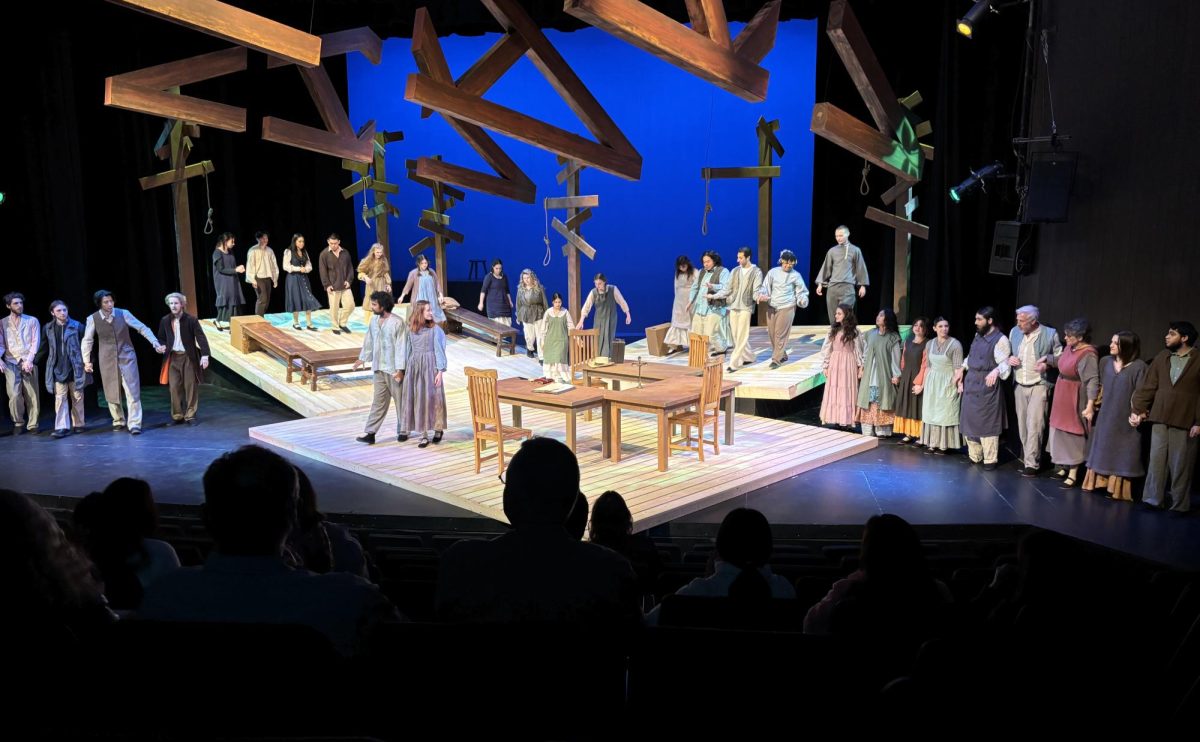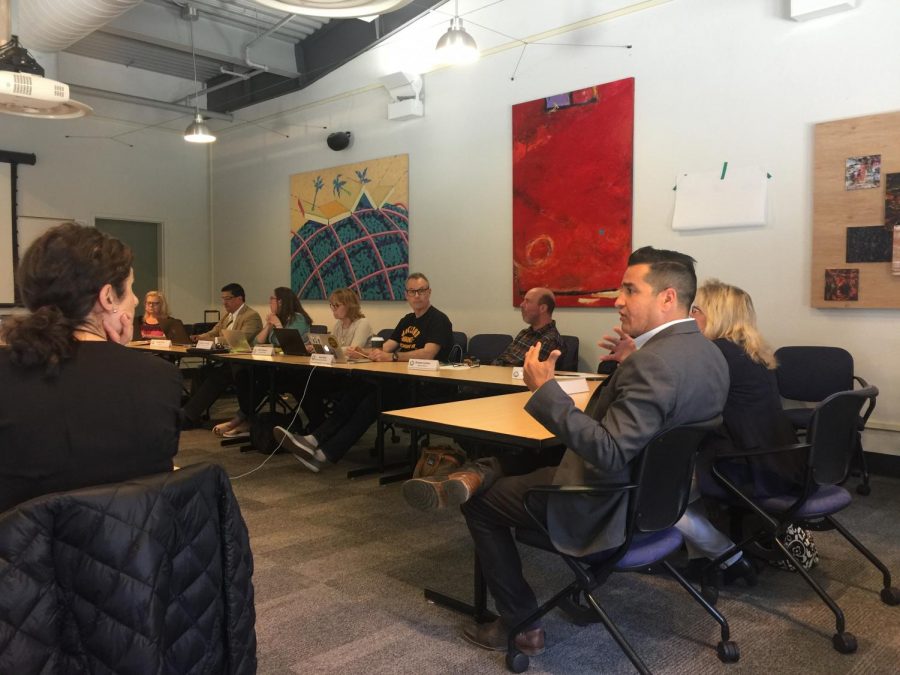Academic Freedom Resolution raises tensions for Academic Senate at DVC
Albert Ponce speaks to the DVC academic senate on May 1st, 2018.
May 6, 2018
Discussions of Academic Freedom Resolution have been in the works since last fall when political science professor Albert Ponce gave a lecture on white supremacy that led to his doxxing.
Ponce led the presentation by saying, “We’re not introducing anything new into the district, but due to our current political climate, and not only the climate that exists out there, the actual actions that have infiltrated our campus and our entire district. We really wanted to take our position as academics, as students and as employees of the Contra Costa Community College District.”
Ponce said, “I was a particular target of these forces, and everything I said in that context was academically verifiable and empirically verified. But yet, due to certain ideological forces, it launched an assault not only on me but on our institution as a whole and on our colleagues.”
“Freedom of speech is not at risk here,” said Ponce. “Academic freedom means something can be defended, tested through rigorous scholarship, reputable, tested intellectually and ultimately verifiable.”
The social science division is at the forefront of needing an academic resolution.
“We speak for groups that have not had a voice and there is some resistance to those voices being heard,” said social science professor Lisa Smiley-Ratchford.
Although most of the senate was in agreement of adopting the resolution, tensions began to rise when members suggested revising and waiting to vote it in.
“This is the first time that the (Academic Senate) has seen this document,” said Academic Senate Vice President John Freytag. “To vote on it today would have to be an emergency item.”
Academic Senate President Beth McBrien said, “John and I did meet several times with Albert, Lisa and a few other folks to try to figure out if we could move this forward with due process as quickly as possible. And that was a couple of months ago. I would caution against now, at the end of the semester, trying to shove it through because you won’t get the kind of input to really make it. So many folks showed up, went away for a few months and came back and said it has to go through right now. So it makes it seem like it’s something that folks got to have some time to talk about.”
An audience member spoke up the senate to explain the urgency saying, “Academic freedom is really under attack and people’s lives are being threatened. There is an urgency that I don’t hear from the folks that are talking about we need to follow procedure. We do need procedure to make sure this thing can get passed in a way that is legitimate, but please understand the model imperative behind the urgency.”
The resolution has yet to be passed, but the senate will be meeting on Tuesday, May 8 to provide feedback from their academic divisions and see any revisions. The senate will then meet on Tuesday, May 22 to vote whether the resolution is adopted or not.








































































